
Bonjo Iyabinghi Noah is explaining the drums.
Growing up, the first thing you do when you get on the drums is think about the heartbeat: Bo… Bop! Bo… Bop! Bo… Bop! Bo… Bop! Or sometimes the heart is slower and the drums, they are slower: baaa… beeep… baaa… beeep… baaa… beeep… baaa…beep.. And sometimes, it is faster, harder: BO! BOP! BO! BOP! BOBOBOBO BOP! The drum is how our heart is functioning. The drum IS our heart. This is why, in reggae, it is our most important instrument.
As one-half of the avant-reggae project African Head Charge, Noah has been pumping blood into the drum for 42 years, demonstrating the connection between the human species and that celestial whomp.
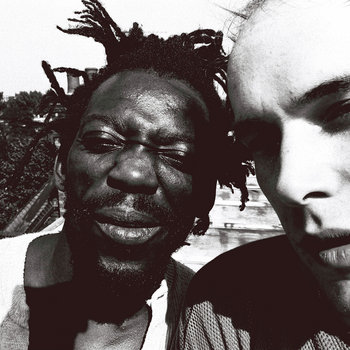


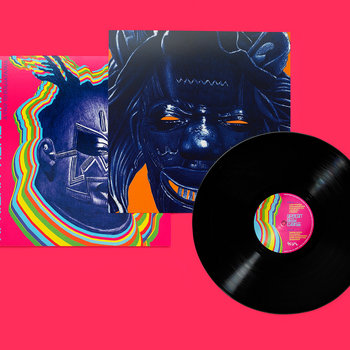
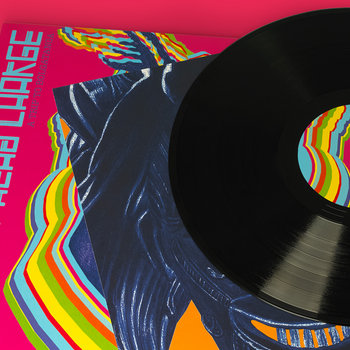
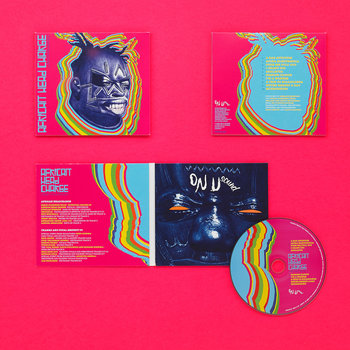
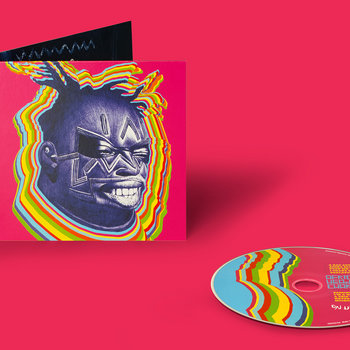

Vinyl LP, Compact Disc (CD)




He’s joined by Adrian Sherwood, the English robo-reggae producer who has, since the dawn of the ‘80s, merged post-punk with traditional reggae while working with the likes of Lee “Scratch” Perry, Ari Up, Prince Far-I, and Mikey Dread. The typical African Head Charge song finds Noah laying down his inimitable and ancient percussion, with Sherwood adding electronic and trippy textures over the rumble. The result is a merging of the ancient and the futuristic that borrows musical tools from across the globe.

But even though the pair have been sonically time-jumping and globe-trotting for over four decades, the first new African Head Charge album in 12 years has a specific focus: Ghana. While he was born in Jamaica, Noah eventually made Ghana his home after traveling the world, including a stint in London in the ‘80s, where he met Sherwood. With A Trip to Bolgatanga, named after one of Ghana’s more rural villages, Noah makes his adopted home the central theme.
Noah says,
I was born in Clarendon, Jamaica—the country part of Jamaica. In the country part, they maintain a lot of the African culture, like the Poco church, which is a spiritual church where people go if they have a problem. People speak in tongues there. They use water, they use drums, all kinds of things to cure people. My grand aunt, Nana Bunchie, and the lot of them: they were always talking about West Africa. Some of the patois is [from] Ghana and they used to tell us a story about brother Anansi and all those characters. They are all Ghana. I remember there is a song, ‘Africa must be free by 1983,’ and I made a plan to go to Ghana, but I didn’t make it until ’94. But when I go there, it was like I was home. I even got married and have four children and two grandsons, so I decide I’m not going anywhere else.
As Noah became more and more integrated into Ghana, he began to see the connection between his Jamaican roots and Ghanaian culture, which became a recurring theme across the new album. He says,
Jamaica and Ghana are the same. It looks the same. People behave the same. The only difference is the language. I go all over Ghana. I spent a lot of time in Kumasi, because I have family there. I spent time in the Ashanti region. I just spent a time in Bolgatanga, especially when the COVID came in, so I decided to stay there. Everywhere is hot. Bolgatanga is the hottest place I have ever been. Even a drinking spot will have a pool. Even the nightclubs have a pool. While I was there, I met King Ayisoba, who plays the kologo, which is an ancient form of guitar. I learn from him and have him on my album.






Vinyl LP, Compact Disc (CD)




A Trip to Bolgatanga zeroes in on how the music of Ghana, particularly the drums, reverberates through the world, all the way to Jamaica and back. On “Never Regret a Day,” Noah merges the Jamaican with the African; he lays down the foundational beat while King Ayisoba adds kologo riffs and vocals, so the two traditions operate in lockstep. Elsewhere, Sherwood applies robotic computer effects to centuries-old sounds. “I Chant Too,” one of the record’s biggest highlights, showcases Noah’s iconic chuuuum-whack-chuuum-whack! alongside ethereal vocals and spacey synths, bridging African folk with English post-punk.
Indeed, the album, with all of its ancient boom-clack-boom-clacks and Blade Runner synth swooshes, shows how seemingly disparate music styles, separated by eons and continents, possess connective tissue. Noah explains his vision of this ancient connection.
You see, music is a gift from the creative force. My faith is in the ancestry. I believe—no, not even believe; I know—that the ancestors are around us. I remember when playing my drums by myself and I just felt that the ancestors were around me. I could feel them: I could feel them through the drums, through the drumming. For me, it is the heartbeat of Jamaica, the heartbeat of Ghana. It is the heartbeat of creation.







